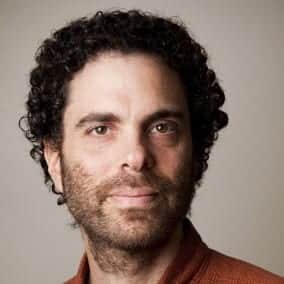As the COVID-19 pandemic continues, several vaccine candidates for the novel coronavirus are being developed. However, the timeline for the successful development of a vaccine is complex and fraught with ethical concerns.
Morgridge bioethicist in residence Pilar Ossorio, Jonathan Kimmelman from McGill University, and Seema Shah from Northwestern University and Lurie Children’s Hospital, joined Gabriella Gerhardt on October 27 for a webinar in the Fearless Science Speaker Series about the contested ethics of a vaccine. The following highlights are some of the key takeaways. A recording of the webinar can be viewed in full above.
When is a coronavirus vaccine going to be available for the public?
“We should start off by acknowledging that most of the efforts in developing vaccines, as well as drugs, turn out not to be successful,” Kimmelman says. “For example, about 11% of drugs that are put into development show enough safety and efficacy to get FDA approval.”

To try and make an estimate for this timeline of development, Kimmelman’s team used two approaches: to look at historic experience in development of vaccines for pathogens like HIV, West Nile, and Zika virus; and also a “Wisdom of the Crowds” approach by pooling expert opinions.
“The average timeline for development of a successful vaccine from phase two testing to approval was about 4.4 years,” Kimmelman says. However, he adds that efforts for COVID-19 are unprecedented in terms of their volume and budgets, which might influence the timeline.
“Experts generally estimated that the odds were about 30% that there’ll be some kind of safety issue that’s discovered once the vaccine is approved,” he says. “We also asked them what’s the probability that the very first clinical trial that announces results produces a negative outcome – that is that the vaccine is not effective. And that estimate is around 40%.”
Kimmelman concludes that there will also be challenges with vaccines that are approved, but uncertainty whether they will actually be helpful.
“The FDA has set a fairly low bar for the approval of a coronavirus vaccine. They’ve said that if a vaccine is 50% protective, and perhaps even as low as 30% protective, that’s enough to get an FDA approval,” he says.
“We might have first generation vaccines, but we might want to have vaccines that are even more effective and even safer, these second generation vaccines.”
How can we distribute the vaccine fairly if there is short supply?
Most of the development and distribution plans aim to limit harm and mitigate inequalities. But Ossorio says that prioritizing values isn’t straightforward.

“People talk about the importance of maximizing benefit through your process of distributing vaccines,” she says. “But when everybody matters equally, that doesn’t mean that we allocate resources to them in just the same way.”
Ossorio says that though most plans differ, they tend to have similar conclusions. In a phased roll out strategy, most plans suggest prioritizing vaccines to healthcare workers and first responders in phase one.
“Their role as providers is crucial for creating benefit and minimizing harm across the society,” she adds. “They’re putting their safety and health at risk for the rest of us…so maybe we owe them something special back.”
Ossorio also talked about authorizing vaccines for marketing. Since a vaccine is administered to many people—and healthy people—safety is a major priority.
“To get a vaccine on the market, the FDA is…almost certainly not going to use the ordinary licensing process, but instead will use what’s called an emergency use authorization.”
This law allows the FDA to authorize a product for marketing in the case of a declared public health emergency.
“I think the FDA is really working to understand what levels of scientific evidence are good enough. What is reasonable in this situation?” Ossorio asks. “Because it’s such an abnormal situation, and yet, getting a vaccine out on the market that’s not safe and not really effective could actually create a lot of harm, and perhaps more harm than good…how much evidence is enough?”
How do we rapidly test a potential vaccine in humans?
“What are controlled human infection studies, or human challenge trials, or voluntary infection studies?” says Shah. “These are studies where participants are deliberately exposed to a pathogen in order to rapidly test vaccines or other interventions, or learn more about the early stages of a disease even before people know that they’re sick.”

Shah draws comparisons to the ethics surrounding challenge trials during the 2015-2016 Zika virus pandemic.
“We worked together to answer the questions of whether a Zika virus human challenge trial could be ethically justified, and if so, under what conditions,” she says. “Recently, Zika virus vaccine field trials have been unsuccessful, as outbreaks have continued but have been really sporadic and hard to predict. So, challenge trials are now proceeding as clearly socially valuable.”
To justify the use of challenge studies for COVID-19, Shah asks if there is sufficient social value, and if the benefits outweigh the risks.
“We argue that risks and benefits to participants have to be identified, evaluated, minimized and below some upper limit of risk,” says Shah. “But what’s hard is that there’s still major uncertainty about COVID-19. The longer-term complications are not fully understood.”
Shah’s team determined that controlled human infection studies for COVID-19 are pushing the limit of what is acceptable, and while it’s worth investing in them, it’s still a close question on whether they’re ethically justified.
“We still have to attend to other ethical considerations and public trust,” concludes Shah. “And this underscores the really important reminder that ethical preparedness is always going to be an important part of pandemic preparedness.”